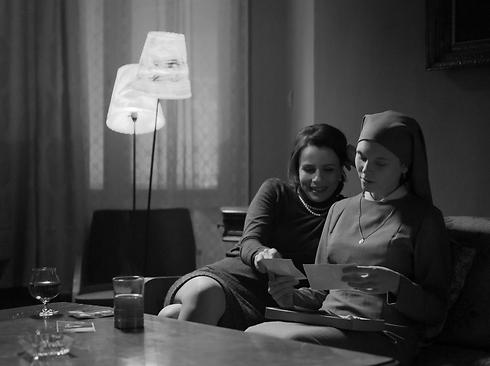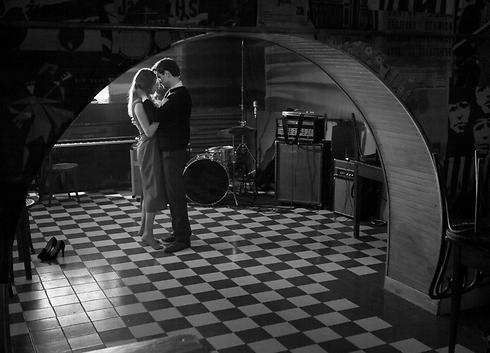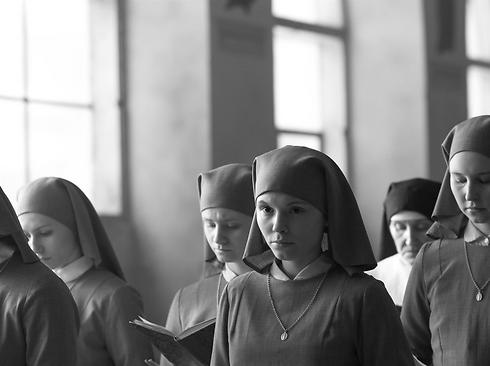
'Not a Holocaust story': 'Ida' wins foreign film Oscar
Director Pawel Pawlikowski's movie explores topics that are nearly taboo in Poland – including killing of Jews during Nazi occupation by Poles with whom they sought refuge – and takes an unsparing look at Jewish communists' role in post-war Poland's security services and judiciary.
"How did I get here," he said.
The win marks the first foreign language Oscar for Poland despite nine previous nominations and a rich history of filmmaking, including by renowned directors like Andrzej Wajda and Roman Polanski.
"It's thrilling. It's fantastic. We have a great tradition of films. Golden ages. But no Oscars," Pawlikowski said backstage.
The tautly made "Ida," a period film that plunges into a dark chapter of Polish history of German occupation during World War II via a young nun who discovers her family's secrets from the era, emerged as one of the critical hits of 2014. Pawlikowski's film also was nominated for its cinematography.
He said he hoped his award would inspire other Polish filmmakers to take more risks and do something, "original and brave."
The director had criticized the press days before for labeling his film a "Holocaust movie," going so far as to say "Ida" had been "hijacked for other purposes" along with all the "fuss and attention."
On-stage Sunday night, he made no mention of his concerns.
Backstage, when asked about his film striking a chord with Israel based on its subject matter concerning the Holocaust, the director reiterated he didn't consider his story a Holocaust story.
"For me, the film is very Polish," he said. "It's about different versions of Polish-ness."
"It's about jazz and rock and roll as well," he added. "I wouldn't make a film for one reason."
Pawlikowski found that Polish-ness in his crew, too, a bunch of different characters including at least one whose nickname translated to, "water heater," who he said carried the film with their "insurgent spirit."
"You are what I love about Poland. Your resilient courage is brave and funny. And you can take a drink," he said on stage.
The music had started to push the director off stage but he kept going long enough to thank his Polish countrymen watching the awards show at home and his children.
"I was about to say this kitch thing that Americans would have loved," he joked backstage. But he did manage a tribute as he walked off stage with his Oscar in hand.
"I love you. You are the main prize," he told his children.
War, trauma and identity
"Ida" is a haunting and controversial drama that lays bare the difficult legacy of the Nazi occupation of Poland and post-war Stalinist rule.
The film shot with uncompromising honesty by Pawlikowski has sparked criticism at home, while earning awards abroad, including a BAFTA.
"We made a film about ... the need for silence and withdrawal from the world and contemplation, and here we are. At the epicenter of noise and world attention. Fantastic, you know," the director told the Oscars audience at the Dolby Theatre in Hollywood on Sunday.
"Life is full of surprises."
The film tells the story of Ida, a young woman in 1960s communist Poland who learns as she is about to take her vows at a Catholic convent that she is Jewish, her parents were murdered under Nazi occupation at the time of the Holocaust, and she was raised by the nuns.
The young woman, played by newcomer Agata Trzebuchowska, embarks on a journey of self-discovery with her aunt, a disillusioned Stalinist-era official who is a tool in the regime's persecution of opponents.
The film explores topics that are nearly taboo in Poland – including the killing of Jews during the Nazi occupation by Poles with whom they sought refuge, a fact swept under the rug in the post-war period.
It also takes an unsparing look at the role of Jewish communists in post-war Poland's security services and judiciary, which were known for torturing and slaughtering regime opponents – a role that was obscured for decades until communism fell in 1989.
'Christianize the Holocaust'
Pawlikowski insists that he did not make the film as a history lesson, but its stark messages have stirred controversy in his homeland.
The Polish Anti-Defamation League has cried foul, saying that "Ida" risks giving foreign audiences the erroneous impression that Poles were behind the Holocaust.
An Internet petition launched by the league and demanding that the director insert commentary into the film about Nazi Germany's wartime occupation of Poland has gathered 50,000 signatures.
It has asked the Polish Film Institute, which co-financed the production, to make sure the film makes clear that thousands of Poles saved Jews during the occupation and paid for it with their lives.
Leftist Polish intellectuals meanwhile have a different beef.
Leading academic Agnieszka Graff accused the film of pandering to "anti-Semitic stereotypes" while also attempting to "Christianize the Holocaust."
Since its October 2013 release, "Ida' has drawn both critical acclaim and praise from audiences for its complex plot and minimalist aesthetic.
Half a million viewers have seen it in France and the United States, while juries at festivals in London, Minsk, Riga and Toronto have feted it with awards.
It also earned an Oscar nomination for best cinematography.
Pawlikowski – who was born in Warsaw in 1957 and has lived in Germany, Italy, Britain and France – has shrugged off the controversy over the film at home.
He told the Hollywood-based Deadline.com website that it was "too silly to comment on."
"I wanted to make the film very specific and very concrete, and at the same time universal and poetic.
"Audiences in Brazil, Spain or Finland respond to it because it transcends the time and the place where it is set. And not because they are being educated about the ins and outs of Polish history."
The Associated Press and AFP contributed to this report.













